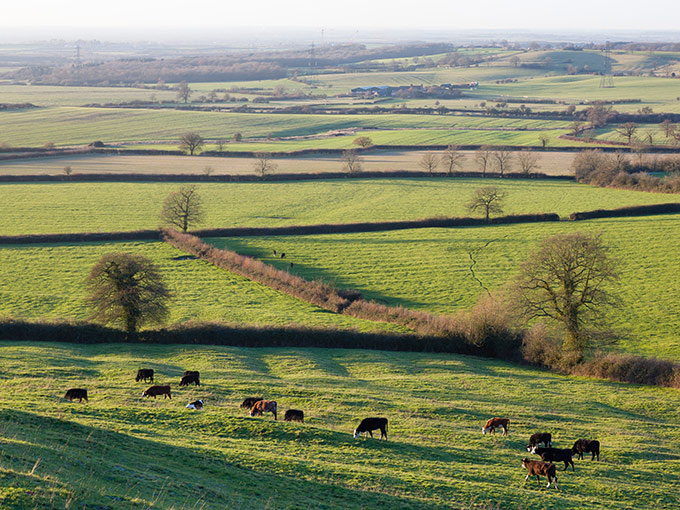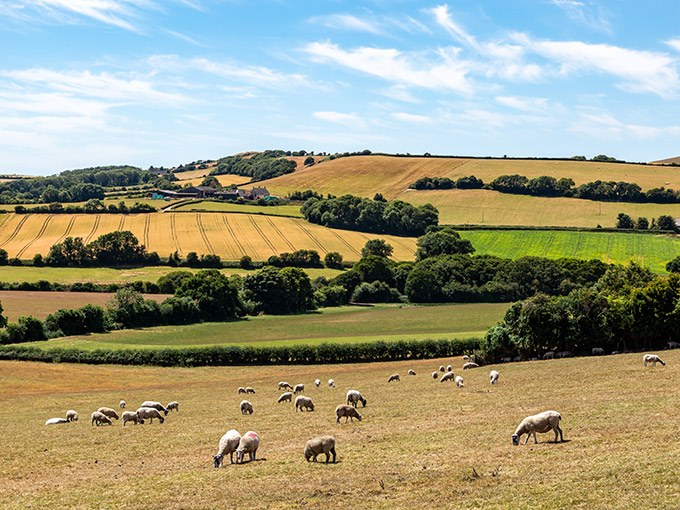Compulsory purchase orders: tax challenges for rural landowners

In an ever-evolving landscape of infrastructure development and house building, compulsory purchase orders (CPOs) are an increasingly important topic.
Here’s a summary of the key issues associated with CPOs, potential available tax reliefs on any compensation payments, as well as the practical considerations.
Key issues with CPOs
Whilst compulsory purchase orders can result in the payment of significant sums to landowners whose land is affected, it’s not necessarily all good news. There is near certainty over the actual land involved in some projects, but there are many other instances of transport schemes for example, where the final route may take considerable time to agree. The delay between a scheme’s initial announcement and the issue of the final paperwork defining the land to be taken can be years.
The issues arising from compulsory purchase are numerous, ranging from the impact on land values in the affected area to the practicalities of the day-to-day running of a land-based business on threatened land. In the meantime, what do business owners do? Mothball plans to expand and invest in their current site, and effectively just ‘tread water’? What will the staff think, and will they stay or look for new, more certain employment? Will the business survive the impact of the land disposal? The impact of these and other questions on current operations needs to be assessed as soon as possible.
For farm businesses, any land taken may be severed from the main holding, effectively making farming operations much more difficult and costly. Also, there will almost certainly be significant disruption whilst the construction on the compulsorily acquired property is underway.
Capital gains tax (CGT) on land disposal
A disposal of land will normally give rise to a capital gains tax (CGT) liability. For non-corporate owners (eg individuals, trusts, and partnerships) tax is charged at up to 24% of the difference between the payment the landowner receives and the acquisition cost of the land, or the March 1982 market value of the land if it was acquired before then.
If the land being acquired under a compulsory purchase order forms part of a larger asset or plot of land (and there can be interesting questions concerning what exactly constitutes the asset), it may be possible to defer the payment of CGT. This is possible if the proceeds from land sales in the tax year are below £20,000 and represent less than 5% of the value of the whole asset. In that case, the proceeds received can be deducted from the base value of the land.
If the land is held jointly and the owners are not already using their personal annual exempt amount for CGT (£3,000 for 2025-26) in the tax year, then the gain may be covered so that no CGT is due on the disposal.
Income tax vs CGT: how compensation payments are taxed
The compulsory purchase payment will extend, where appropriate, to compensating the landowner for any permanent reduction in the value of land retained but affected, for example where a parcel of land is severed from the main farm holding, but the monies received will be subject to CGT. However, there will be situations where land is only temporarily lost from normal farming operations, where, for example, a construction team needs land for a site office, equipment pound, or for storage. Receipts for these types of use will be subject to income tax, rather than CGT.
Inheritance tax (IHT) considerations
A further consideration, especially for farmers, will be the impact on their potential exposure to IHT. Following the reforms to Agricultural Property Relief (APR) and Business Property Relief (BPR) announced in the Autumn Budget 2024, with effect from 6 April 2026, qualifying agricultural land and business assets with a combined value of up to £1 million will continue to benefit from 100% relief, with any value above this threshold eligible for 50% relief. The result of this is that the farmer’s exposure to IHT in relation to their land is reduced.
However, compensation payments (ie cash) will not benefit from relief unless reinvested into other qualifying IHT relievable assets. The reinvestment for CGT rollover relief (explained in more detail below) doesn’t have to be into property used by the owner in their trading business, for example a let office, but these assets may not attract relief from IHT.
Eligible reliefs for landowners facing compulsory purchase
There are also potentially some reliefs that may be available where a chargeable gain arises on the disposal of land by way of compulsory purchase order.
Business Asset Disposal Relief (BADR)
Business Asset Disposal Relief (BADR) is available to reduce the rate of CGT applying to gains arising on the disposal of a trading business. For disposals on or before 5 April 2026 the CGT rate applying to disposals qualifying for BADR up to the available lifetime allowance (a max gain of £1 million) is 14%, rising to 18% for disposals on or after 6 April 2026. However, whilst many land disposals under compulsory purchase orders will be by trading businesses, BADR is only available if the farmer is ceasing to trade at the same time. It’s important to remember that this relief only applies where there is a disposal of a business or business interest, so simply disposing of a business asset (ie the land) will not qualify.
BADR is not available to landlords on their disposals of land, and there is no other equivalent relief available.
CGT rollover relief
In cases where the proceeds are greater than the annual exemption, the rollover relief provisions are very valuable, but are subject to conditions including a time limit and a restriction on the nature of the new asset. In particular:
- Re-investment must be made within a four-year window, commencing one year prior to the sale and ending three years after it,
- The land must not have been marketed or advertised for sale, and
- Relief is only available when the proceeds are rolled into the purchase of other land and property.
While there is a time limit for reinvestment, it’s possible for HMRC to extend the window of re-investment. It’s not possible to reinvest the proceeds into an asset other than land or property (even if that asset is a business asset) and the new property may not be used as a main residence by the taxpayer, which can cause issues with owner-occupied farmhouses. However, because it’s a compulsory purchase, the re-investment can be into non-trade property, such as a commercial building that is let.
For those who are unable to find suitable replacement land within the narrow window, they will not only have a CGT liability, but a potential change in their exposure to IHT too.
Practical issues
As well as the tax considerations outlined above, there are practical points to consider too. The price of agricultural land has soared over the last decade, and it may be difficult for those impacted to find replacement land at an affordable price in the timescale permitted, particularly land close to existing holdings. The impact of the 2024 Autumn Budget and the proposed changes to APR on land values cannot yet be quantified.
The date of disposal for CGT only crystallises at the point that the compensation proceeds are agreed, which can be different to when the cash is received. It is therefore important to reserve amounts for tax where there is a liability to pay at a later date.
The farmer will need to consider how the farm will operate after the disposal, especially if the reduced acreage places pressure on covering the fixed costs, or if there are pockets of land severed from the main holding, which are then more expensive to use.
How we can help
Although receiving a compulsory purchase order might initially seem straightforward, individuals may find that on deeper analysis of their situation, it will cause many problems and is far from being a welcome windfall. It’s vitally important that landowners who think they may be affected take action quickly to consider the full implications of compulsory purchase or other compensation payments being offered.
If you think you may be affected by a compulsory purchase or compensation offer, we strongly recommend seeking advice early. Every situation is different, and a tailored approach can help you protect your position and make informed decisions. Please get in touch with Erica White for more information.









